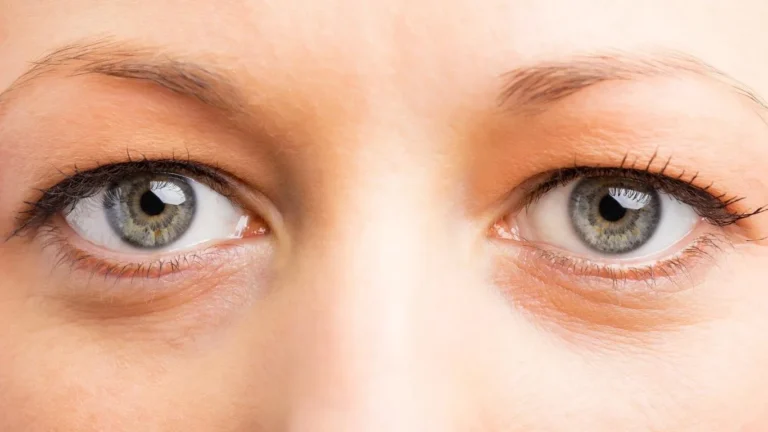Can Asthma Cause Numbness in Fingers? Discover the Link and Solutions
As an asthma expert specializing in respiratory health and treatment, I’ve come across a variety of questions from individuals struggling with asthma. One of the most common concerns I hear from patients and their families is, “Can asthma cause numbness in fingers?” It’s an intriguing question, one that often arises when people experience unusual symptoms during an asthma attack or while managing their asthma on a day-to-day basis. Today, we’re going to explore this topic, shedding light on whether asthma could indeed cause numbness in the fingers and what might be going on when that happens.
Understanding Asthma and Its Symptoms
Asthma is a chronic respiratory condition that affects millions of people worldwide. It causes inflammation and narrowing of the airways, leading to symptoms such as wheezing, coughing, shortness of breath, and chest tightness. While most people associate asthma with respiratory issues, it’s important to understand that the effects of asthma can sometimes extend beyond the lungs, and this is where things can get tricky.

Many asthma patients have experienced the more common signs and symptoms, but what about other, less obvious indicators? Numbness in the fingers is one of those symptoms that might not immediately come to mind when thinking about asthma. You might wonder if there’s a connection between your asthma symptoms and that tingling or numb sensation in your hands. Let’s dive into the science behind it.
Can Asthma Cause Numbness in Fingers?
The short answer to the question is yes, asthma can potentially lead to numbness in the fingers, but it’s not a direct cause-and-effect relationship. Numbness or tingling in the fingers, also known as paresthesia, can be linked to several factors, including asthma. However, it’s important to understand the underlying reasons for why this might happen.
First, let’s talk about how asthma affects the body. When you have an asthma attack or even during times of heightened asthma symptoms, your body undergoes significant physical stress. The most immediate effect is the restriction of airflow due to the inflammation and constriction of the airways. But the stress caused by asthma can sometimes cause changes in how blood circulates throughout your body.
The Role of Oxygen and Blood Flow in Asthma
One of the key players in asthma-related numbness is oxygen. When your airways are constricted, you might not be getting enough oxygen into your lungs. This can lead to a drop in oxygen levels in your bloodstream, affecting how your body functions overall. As oxygen levels decrease, the flow of blood and oxygen to various parts of your body, including your fingers, may become compromised. This reduced oxygen supply to the extremities could contribute to the sensation of numbness or tingling in the fingers.

In some cases, asthma attacks can cause a temporary reduction in circulation to the extremities, leading to that familiar tingling or “pins and needles” sensation. It’s not uncommon for people to experience numbness in their hands or feet, especially if they’ve been hyperventilating or struggling to breathe effectively. The stress placed on the body during an asthma attack can also lead to hyperventilation, which can further exacerbate the issue of blood flow to the extremities.
Asthma Medications and Numbness
Another aspect to consider is the potential side effects of asthma medications. Many asthma patients rely on inhalers, including bronchodilators and corticosteroids, to manage their symptoms. While these medications are incredibly effective in reducing inflammation and opening up the airways, they can also have side effects that affect other parts of the body, including the nervous system.
Corticosteroids, for example, are known to have a variety of side effects. Long-term use of oral corticosteroids can sometimes cause nerve damage, which may contribute to sensations of numbness or tingling in the fingers or hands. While this is not a universal side effect, it’s worth noting for those on long-term asthma treatment plans. It’s always a good idea to discuss any unusual symptoms with your doctor, especially if you think they may be related to your asthma medications.
Other Health Conditions to Consider
While asthma can certainly contribute to numbness in the fingers, it’s important to rule out other potential causes of paresthesia. There are a number of health conditions that can also cause numbness in the fingers, such as carpal tunnel syndrome, diabetes, or neurological disorders. If you’re experiencing frequent or persistent numbness, it may be worth discussing these other possibilities with your healthcare provider to ensure an accurate diagnosis.
- Carpal Tunnel Syndrome: This is a condition that affects the nerves in the wrist and can cause numbness or tingling in the fingers. It can be exacerbated by repetitive motions and pressure on the wrists, often leading to discomfort in the hands and fingers.
- Diabetes: People with diabetes may experience nerve damage, a condition called diabetic neuropathy, which can lead to numbness or tingling in the fingers and toes.
- Neurological Conditions: Certain neurological conditions can affect the nerves and lead to numbness, including multiple sclerosis or even vitamin deficiencies.
In some cases, these conditions could be independent of asthma but may share overlapping symptoms, so it’s important to take a comprehensive approach to diagnosing the cause of your symptoms.
Conclusion
In conclusion, while asthma itself may not directly cause numbness in the fingers, there are several factors related to asthma that could contribute to this sensation. Reduced oxygen levels, circulation issues, medication side effects, and even the physical stress of an asthma attack can all play a role in causing numbness or tingling in the fingers. If you’re experiencing this sensation, it’s important to speak with your doctor to rule out other possible causes and determine the best course of action for managing your symptoms.
Other Contributing Factors to Numbness in Fingers
Now that we’ve explored how asthma itself might contribute to numbness in your fingers, let’s dig deeper into some of the other contributing factors that could be at play. As an asthma expert, I often emphasize the importance of considering the whole body, not just the lungs, when dealing with chronic conditions. In fact, there are multiple factors that could make your fingers feel numb or tingly—some of which may not be directly related to asthma, but are definitely worth considering. Let’s take a look at these possible culprits.

Dehydration and Electrolyte Imbalance
One of the lesser-known triggers of numbness in the fingers is dehydration or an electrolyte imbalance. When you’re dealing with asthma, especially during flare-ups, you’re more likely to become dehydrated, especially if you’re using medications like inhalers that can lead to a dry mouth or throat. Also, some asthma medications, such as bronchodilators, can lead to an imbalance in important electrolytes like sodium, potassium, and calcium. When electrolytes aren’t in proper balance, it can cause symptoms like muscle weakness, tingling, or numbness in the fingers and hands.
As someone who’s had asthma for years, I know firsthand how dehydration can sneak up on you when you’re focused on managing your breathing. The more you think about taking deep, controlled breaths, the more you might forget about staying hydrated. This can have a compounding effect on your overall well-being, so it’s crucial to stay on top of your fluid intake. Additionally, if you’re on long-term asthma medication, it’s a good idea to ask your healthcare provider to monitor your electrolyte levels as well.
Stress and Anxiety
Another big player in the numbness game is stress and anxiety. If you’ve ever experienced an asthma attack, you know that the panic that comes with struggling to breathe can be overwhelming. That panic can trigger an anxious response, which might include hyperventilating. Hyperventilation, in turn, can cause tingling or numbness in the extremities, including your fingers.
Many of my patients have shared how they sometimes feel “on edge” after an asthma attack, worried about the next one. This anxiety can have physical consequences, especially in the form of tingling or numbness in the hands. What happens is that when you hyperventilate, your body expels too much carbon dioxide, which can cause blood vessels to constrict and reduce circulation to your extremities. If you find yourself feeling anxious during or after an asthma flare-up, it’s worth trying some relaxation techniques like deep breathing, meditation, or yoga to help reduce stress and calm your nervous system.
Underlying Medical Conditions to Rule Out
While asthma and its related factors may be contributing to numbness in your fingers, it’s also important to keep in mind that there are a variety of medical conditions that could be involved. It’s easy to assume that everything is related to your asthma, but sometimes there could be other factors at play that are more concerning. Let’s go over some of the other health conditions that could cause similar symptoms to asthma-related numbness.

Peripheral Neuropathy
Peripheral neuropathy is a condition that affects the nerves outside of your brain and spinal cord. It often causes symptoms like tingling, numbness, or a burning sensation in the hands and feet. This condition is more common in people with diabetes, but it can also occur in individuals with certain autoimmune diseases, infections, or even as a result of long-term medication use. If you experience persistent numbness or tingling that doesn’t seem to be related to your asthma, it may be worth investigating whether peripheral neuropathy is contributing to your symptoms.
Carpal Tunnel Syndrome
Another possibility to consider is carpal tunnel syndrome. This condition occurs when the median nerve, which runs through your wrist, becomes compressed. The symptoms of carpal tunnel syndrome include numbness, tingling, or weakness in the hands, particularly the fingers. This can be exacerbated by activities that put pressure on the wrist, such as typing for long periods or repetitive movements. Although carpal tunnel syndrome isn’t directly related to asthma, it’s a common cause of finger numbness that could overlap with your asthma symptoms.
What Should You Do If You Experience Numbness?
If you’re dealing with asthma and experiencing numbness in your fingers, it’s important to take a few steps to ensure that you’re addressing all possible causes. I’ve worked with many patients who initially brushed off these symptoms, assuming they were just a part of their asthma, but over time they learned that it was important to pay attention to their bodies and seek professional advice. Here’s what you can do:
- Track Your Symptoms: Keep a detailed log of when the numbness occurs, how long it lasts, and any potential triggers you notice. This will help your healthcare provider understand whether it’s related to your asthma or something else.
- Consult Your Doctor: Don’t hesitate to bring up your symptoms with your doctor. They may want to run tests to rule out other conditions such as diabetes, carpal tunnel syndrome, or peripheral neuropathy.
- Review Your Medications: If you’re on long-term asthma medications, check in with your doctor to see if any of them could be contributing to your symptoms. A change in medication may be necessary if side effects are causing the numbness.
- Focus on Stress Management: Since stress and anxiety can exacerbate the feeling of numbness, make sure you’re engaging in stress-reducing activities. Simple relaxation techniques like deep breathing or gentle stretching can go a long way in helping you manage both your asthma and your overall well-being.

As someone who has worked with many asthma patients over the years, I’ve seen firsthand how important it is to approach your health holistically. While asthma may be the main condition you’re managing, it’s essential to consider how it impacts your body as a whole, including things like circulation, stress levels, and nerve function. By staying vigilant and proactive in monitoring your symptoms, you can work with your healthcare provider to find the best solutions to keep both your asthma and your finger numbness in check.
When to Seek Medical Attention for Numbness in Fingers
As we’ve explored throughout this article, numbness in the fingers can be linked to a variety of factors, some of which are related to asthma, while others may be unrelated. If you’re someone managing asthma, you might experience occasional numbness in your fingers, especially during or after an asthma flare-up. However, there are certain signs and symptoms that should prompt you to seek medical attention as soon as possible. It’s crucial not to brush off persistent or severe numbness, as it could indicate a more serious underlying condition that requires immediate care.

Warning Signs to Watch For
While occasional numbness may be harmless, there are certain warning signs that you should never ignore. If you experience any of the following symptoms alongside the numbness in your fingers, I strongly recommend seeking medical attention right away:
- Severe or sudden numbness: If the numbness comes on suddenly and is intense, it could be a sign of something more serious, such as a stroke or neurological condition. You should never ignore sudden changes in sensation, especially if they occur in one side of your body.
- Pain or weakness: If the numbness is accompanied by pain or weakness, it could indicate nerve damage, poor circulation, or an injury. This combination of symptoms requires a thorough evaluation from your doctor.
- Chest pain or difficulty breathing: These symptoms could point to an asthma exacerbation or another respiratory issue. If you’re having trouble breathing or experience chest pain with numbness in your fingers, it’s time to call your healthcare provider or visit the emergency room.
- Persistent numbness: If the numbness lasts for an extended period of time or doesn’t seem to go away, it may be a sign of a more chronic condition like diabetes, carpal tunnel syndrome, or even a vitamin deficiency.
As someone who has worked with asthma patients for years, I can’t emphasize enough how important it is to listen to your body. If you’re ever unsure whether your symptoms are related to asthma or something else, don’t hesitate to reach out to a medical professional for advice. The sooner you address the problem, the easier it will be to manage and treat it effectively.
Getting a Comprehensive Diagnosis
One of the key principles of effective asthma management is getting a comprehensive diagnosis. Numbness in the fingers might just be a minor side effect of asthma, but it could also be a sign of a larger issue that requires specific treatment. When you see your healthcare provider, be sure to mention all of your symptoms—no matter how small they seem. This will help them get a full picture of what’s going on in your body and offer the best possible treatment plan.
Your doctor may want to conduct a few tests to rule out other possible causes of the numbness. This might include:
- Blood tests: To check for diabetes, vitamin deficiencies, or other conditions that could affect nerve function.
- Neurological exam: To assess nerve function and determine if a condition like peripheral neuropathy is at play.
- Imaging tests: If there’s concern about a more serious issue like a stroke or nerve compression, your doctor might recommend imaging tests such as an MRI or CT scan to get a clearer view of your brain, spinal cord, and nerve health.
By getting the right tests and evaluations, your healthcare provider can create a tailored plan to help address not only your asthma but also any other issues contributing to your symptoms. This kind of comprehensive approach is key to maintaining good health and well-being, especially when living with chronic conditions.
How to Prevent Numbness in the Fingers Related to Asthma
Now that we’ve covered the possible causes and symptoms of numbness in your fingers, you might be wondering how to prevent it from happening in the first place. There are several strategies you can implement in your daily routine that could reduce the likelihood of numbness, especially if it’s related to your asthma. Here are a few of the best ways to prevent finger numbness:

Stay on Top of Your Asthma Management
The most important step in preventing any asthma-related complications, including numbness, is keeping your asthma well-managed. This means taking your medications as prescribed, avoiding asthma triggers, and regularly monitoring your symptoms. If you find that your asthma is frequently flaring up or you’re having trouble breathing, it’s crucial to speak with your doctor about adjusting your treatment plan. This might include changing medications or incorporating other management strategies, such as breathing exercises or lifestyle changes.
For me, sticking to my asthma management plan has been one of the most effective ways to prevent additional complications. Whenever my asthma is under control, I find that the other symptoms, like numbness, rarely occur. If you’re not sure whether your current plan is working, don’t hesitate to check in with your doctor for a review.
Focus on Hydration and Electrolyte Balance
As we discussed earlier, dehydration and electrolyte imbalances can be contributors to numbness in the fingers. Staying hydrated and maintaining a proper balance of electrolytes can go a long way in preventing this issue. Make sure to drink plenty of water throughout the day, and consider consuming foods rich in essential electrolytes like potassium (found in bananas and spinach) and magnesium (found in nuts and seeds).
Sometimes we forget how much staying hydrated impacts our overall health. If you’re like me and live an active lifestyle or have asthma, ensuring you’re properly hydrated can make a huge difference in how you feel, not just with your breathing but with overall body function as well.
Practice Stress-Reduction Techniques
Given that stress and anxiety can worsen asthma symptoms and contribute to numbness, incorporating stress-reduction techniques into your routine is a great preventative measure. Whether it’s deep breathing exercises, yoga, mindfulness, or just taking time for yourself, reducing stress is essential for your physical and mental health. I find that when I’m less stressed, my asthma symptoms are more manageable, and my overall health improves.
Maintain Healthy Nerve Function
To prevent numbness related to nerve health, consider incorporating habits that support healthy nerve function. This might include consuming a diet rich in vitamins like B12, which supports nerve health, and taking regular breaks if you’re engaging in repetitive activities. Regular exercise, including stretching and strength-building exercises, can also improve circulation and reduce the risk of nerve compression, which can lead to numbness.
Disclaimer
The information provided in this article is meant for educational purposes only. It is not intended to replace professional medical advice, diagnosis, or treatment. Always consult with your healthcare provider for advice regarding any medical condition or symptoms you’re experiencing. If you have any concerns about your asthma or any other health issues, please reach out to a healthcare professional for guidance.
References

Bianca Nala is a compassionate Nurse Practitioner with a strong background in primary and respiratory care. As a health writer for Healthusias.com, she combines her clinical expertise with a talent for clear, relatable storytelling to help readers better understand their health. Bianca focuses on topics like asthma, COPD, chronic cough, and overall lung health, aiming to simplify complex medical topics without losing accuracy. Whether she’s treating patients or writing articles, Bianca is driven by a single goal: making quality healthcare knowledge accessible to everyone.






